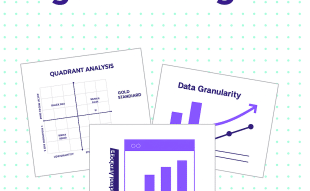The betting and prediction market landscape is experiencing significant legal turbulence as major platforms DraftKings and Kalshi find themselves embroiled in multiple lawsuits across the United States. Both companies are fighting different battles that highlight the evolving regulatory environment surrounding online gambling and prediction markets. Recent developments reveal how promotional tactics and jurisdictional disputes are shaping the future of these industries.
DraftKings Under Fire for Allegedly Deceptive Promotions
Online gambling giant DraftKings is facing mounting legal pressure as multiple class action lawsuits allege the company employs misleading marketing strategies. Pennsylvania residents recently launched a federal suit claiming that DraftKings deliberately targets vulnerable users with promotions that aren’t as favorable as they appear. The lawsuit, filed in the US District Court for the Eastern District of Pennsylvania, portrays a business model specifically designed to exploit at-risk gamblers, particularly young men, through complicated bonus programs and problematic marketing tactics.
The plaintiffs allege substantial financial losses resulting from DraftKings’ approach to customer engagement. According to the lawsuit, the platform capitalizes on addictive behaviors while offering inadequate self-exclusion protections. Central to these accusations are the company’s heavily marketed “No Sweat” promotions and deposit matching offers that plaintiffs claim contain hidden restrictions and requirements.
The Mechanics Behind Contested Promotions
When examining DraftKings’ promotional strategy, plaintiffs highlight several concerning practices. The company’s “No Sweat” deals, marketed as safe betting options, allegedly require users to wager their own money first. Upon losing, rather than receiving actual cash refunds, users reportedly receive “Bonus Bets” – credits with significant limitations1. These bonus credits typically expire quickly, only pay out a portion of potential winnings, and come with strict usage requirements. The lawsuit claims these crucial terms are either buried in fine print or revealed only after deposits have been made.
One plaintiff describes how a VIP host encouraged increased betting activity and faster deposits despite previous attempts to limit gambling behavior. Another plaintiff alleges that DraftKings allowed continued gambling access even after enrollment in Pennsylvania’s self-exclusion program – a system designed to help those struggling with gambling addiction.
The Casino Deposit Match program has also come under scrutiny. While promising to double deposits up to $2,000, plaintiffs claim these offers include nearly impossible conditions. These include requirements to wager tens of thousands of dollars within short timeframes and restrictions that effectively prevent withdrawals. Users unable to meet these conditions allegedly forfeit both bonus amounts and original deposits, regardless of winning outcomes.
Pattern of Legal Challenges Across Multiple States
DraftKings’ legal troubles extend well beyond Pennsylvania. In New York, plaintiff Nerye Aminov filed a class action alleging the company misleads consumers about its $1,000 deposit bonus offer. According to the lawsuit, advertisements create the false impression that new users automatically receive the bonus upon initial deposit, when in reality, complex conditions must be met – conditions allegedly not clearly disclosed in marketing materials.
This New York lawsuit seeks to represent a nationwide class and New York subclass of consumers who opened accounts and deposited funds in response to the promotion, placed bets, and suffered financial harm as a result.
Terms a new consumer could not reasonably have been expected to understand
In Massachusetts, the Public Health Advocacy Institute (PHAI) – an organization known for successfully prosecuting big tobacco – has filed a proposed class action lawsuit against DraftKings in Middlesex Superior Court. This legal claim focuses on a signup promotion that allegedly promises new bettors a “$1,000 Bonus” upon registration. However, the lawsuit contends that customers only receive this bonus after depositing $5,000 and wagering $25,000 within 90 days. Additional fine print purportedly requires bets to be placed on odds of -300 or longer.
The Massachusetts filing argues that advertisements typically displayed a “Join DraftKings Sportsbook. New Customers Get a $1,000 Deposit Bonus in DK Dollars!” message with only a small “view terms” link below. The lawsuit contends that “a new consumer could not reasonably have been expected to understand” that receiving the full bonus would require risking $25,000 within 90 days.
A separate class action in New York, filed by Clara De Leon and Eric W. Mirsberger Jr., accuses DraftKings of “deceiving New Yorkers and misleading them” into betting larger sums more frequently. This lawsuit specifically challenges DraftKings’ use of terms like “risk-free bet” or “no sweat bet,” claiming these promotions falsely promise free money without risk while actually providing refunds via bonus bets rather than real money.
Kalshi Challenges State Regulators in Federal Court
While DraftKings battles accusations about its promotional practices, prediction market platform Kalshi is engaged in its own legal fight, albeit of a different kind, against state regulators. The dispute centers on whether Kalshi’s event contracts constitute sports betting, which would require state licensing, or financial derivatives under federal regulation.
Kalshi recently filed a lawsuit against Maryland regulators after receiving a cease-and-desist order from the Maryland Lottery and Gaming Control Commission (MLGCC). Filed in the US District Court for the District of Maryland’s Northern Division, the lawsuit argues that Maryland is overstepping its authority by attempting to regulate federally overseen financial contracts.
Jurisdictional Disputes Between Federal and State Authorities
The core of Kalshi’s legal argument involves complex jurisdictional questions. The company maintains that it operates under the Commodity Futures Trading Commission’s (CFTC) oversight and is therefore subject to federal rather than state regulations. Maryland authorities disagree, with MLGCC Director John Martin contending that Kalshi’s offerings are essentially sports wagering products offered without the required state license.
On April 7, Maryland sent cease-and-desist orders to Kalshi, Crypto.com, and Robinhood, stating that “the sports event prediction markets they offer via their online platforms are indistinguishable from sports wagering because they are based on the outcomes of sporting events.” The notice claimed these markets circumvent Maryland law, which defines sports wagering and permits it only through licensed operators.
Facing an April 22 deadline for enforcement, Kalshi filed its lawsuit asking the district court to stop enforcement of the cease-and-desist order. This legal strategy mirrors similar actions the company has taken in Nevada and New Jersey when faced with regulatory challenges.
In its filing against Maryland, Kalshi argues that the state’s actions represent “intrusion into the federal government’s ‘exclusive’ authority to regulate futures derivatives trading on exchanges overseen by the Commodity Futures Trading Commission.” The company is seeking both preliminary and permanent injunctions against Maryland’s enforcement efforts.
Recent Legal Victories and Ongoing Battles
Kalshi’s lawsuit references a recent victory in Nevada, where a US District Court granted the company a preliminary injunction in a similar case. The Nevada court explained that “because Kalshi is a CFTC-designated DCM, it is subject to the CFTC’s exclusive jurisdiction and state law is field preempted.”
The Nevada ruling acknowledged that Kalshi faced “irreparable harm” due to what the court described as a “Robson’s choice”: complying with state demands would risk CFTC enforcement for violating core principles for a national exchange, while non-compliance would expose the company to civil and criminal liability.
Despite this victory, Kalshi remains in legal disputes with regulators in at least six states that have issued cease-and-desist orders against the company. The outcome of these cases could significantly impact the future of prediction markets in the United States.
Federal Oversight and Regulatory Evolution
The CFTC plays a central role in the ongoing debates about prediction markets. The federal regulator has been actively reviewing contracts offered by Kalshi, particularly those related to political outcomes. In 2023, the CFTC announced a comprehensive review of Kalshi’s congressional control contracts to ensure their fairness and regulatory compliance.
Kalshi had submitted contracts allowing participants to speculate on which political party would gain control over different sections of Congress. These contracts settle with monetary transactions rather than physical assets. The CFTC sought public input during a 30-day window to help inform its decision regarding the acceptability of these contracts.
The discussion around regulatory roles continues to evolve. A draft proposal introduced by House Republicans aimed to clarify regulatory boundaries, suggesting that the CFTC would regulate crypto commodities while the SEC would handle digital securities. This proposal represents an effort to establish a comprehensive regulatory framework that encourages innovation while protecting market participants. In particular, this would bring more clarity regarding the legal status of crypto casinos.
Industry Implications and Consumer Protection Concerns
The legal challenges facing both DraftKings and Kalshi highlight broader questions about consumer protection in emerging digital betting markets. DraftKings’ lawsuits focus on allegations that the company uses customer information to identify potentially risky behaviors and then targets those users with personalized incentives to increase engagement. Critics suggest this approach prioritizes profits over responsible gambling practices.
DraftKings’ plaintiffs also claim the company limits betting activity for users who demonstrate skillful gambling practices, while simultaneously assigning VIP Hosts to players showing potential signs of gambling addiction. These hosts allegedly “milk them for every dollar they have” through tactics like promotion offers requiring additional deposits and wagers.
The lawsuits seek financial recovery for losses and damages under both state and federal consumer protection laws. Beyond individual compensation, these legal battles could establish important precedents for marketing practices throughout the online gambling industry.
As for Kalshi and other prediction market platforms, the ongoing legal disputes will likely determine whether these products can continue operating nationwide under federal oversight or will require state-by-state licenses similar to sports betting operators. The upcoming CFTC roundtable on prediction markets could provide additional clarity, though ultimate resolution will likely come through the courts.
The regulatory landscape for both sports betting and prediction markets continues to evolve rapidly as these industries grow. The outcomes of these legal challenges will shape not only the future of DraftKings and Kalshi but potentially the entire regulatory framework for online gambling and prediction markets in the United States.
Related News
-
- Betting Giant DraftKings Takes a Step Back from Prediction Markets Amid Regulatory Uncertainty
- Kalshi in Trouble? Prediction Market Platform Under Investigation
- DraftKings Faces Allegations of Deceptive Practices and Consumer Exploitation
- Event-Based Trading: Kalshi’s Legal Battle Challenges Regulatory Boundaries


